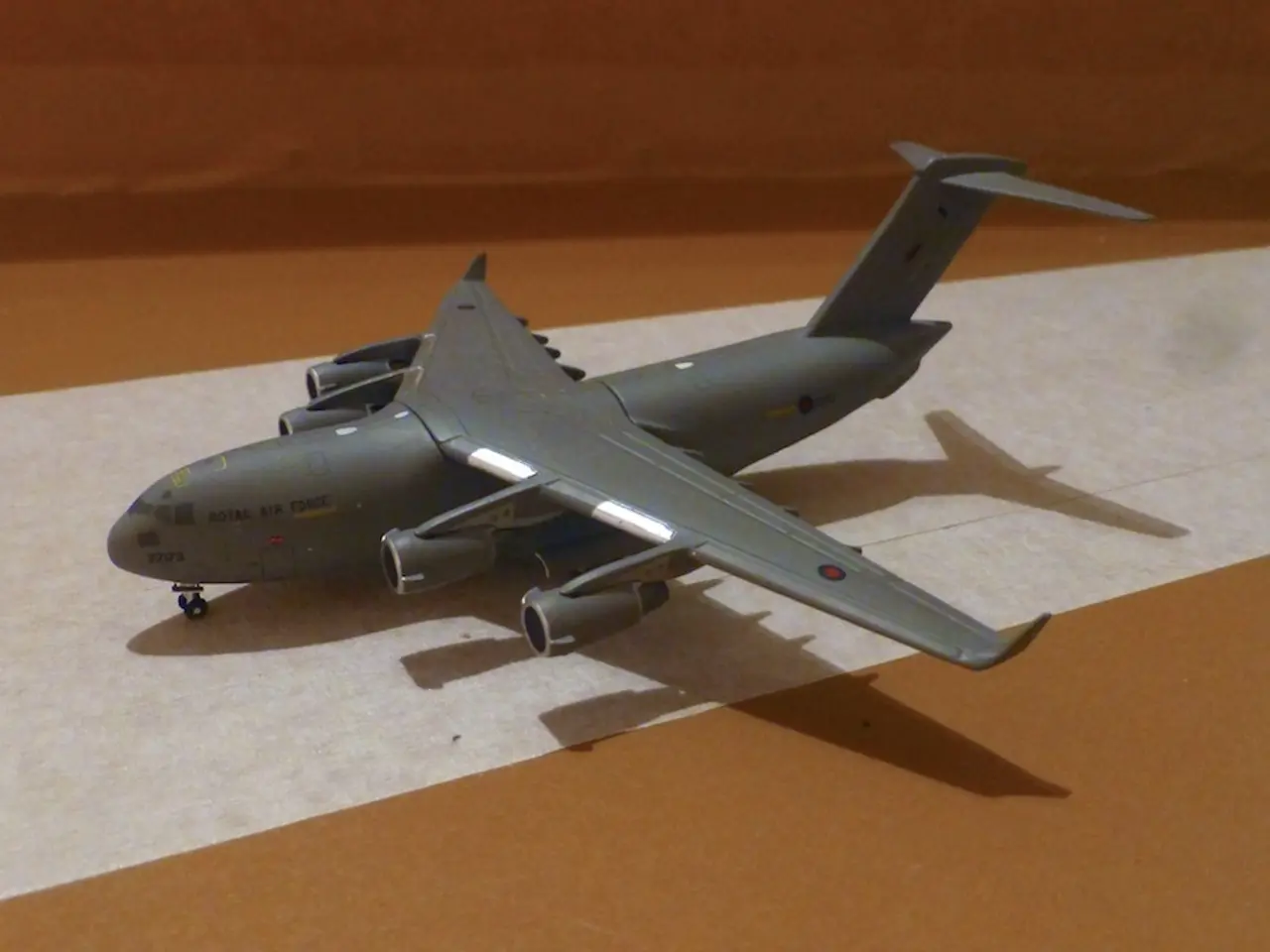Igniting the Heavens Above or Aerially Charging the Atmosphere
In the realm of aviation, a new era is dawning as Airbus spearheads advancements in hybrid-electric propulsion. This innovative technology, which combines traditional fuel engines with electric motors, promises significant improvements in fuel efficiency, emissions reduction, and operational costs.
The focus is on regional, commercial, and unmanned aircraft sectors, with potential benefits such as a 30% increase in fuel efficiency for regional turboprop aircraft and up to 70% reductions in fuel consumption and emissions for retrofitted general aviation models. Enhanced battery technologies, leveraging lithium-sulfur and solid-state chemistries, are set to extend flight range and safety compliance, with energy densities exceeding 400 Wh/kg.
Airbus is at the helm of a cross-industry collaborative effort under the European Union’s Clean Aviation initiative. Key roles include developing next-generation hybrid-electric propulsion technologies, coordinating partnerships with engine manufacturers, driving R&D efforts in AI and machine learning, and championing regulatory harmonization and infrastructure development.
One of the most promising projects is the SWITCH project, which aims for up to 25% CO2 reduction on short- and medium-range aircraft using water-enhanced turbofans. Airbus is also in discussions with aerospace suppliers for solid-state batteries adapted for aerospace, with prototypes expected by 2030.
The demonstrator Ecopulse, developed by Airbus, Daher, and Safran, is based on a light aircraft and helps increase knowledge of distributed propulsion systems and multiple power source management. Airbus is also collaborating with players in other sectors to develop more powerful batteries.
However, challenges remain. A compromise must be found between performance, volume, and mass in an aircraft's weight-sensitive, aerodynamically-optimised environment. The energy density of current-generation batteries, such as Lithium-Ion (Li-Ion), is lower compared to kerosene and hydrogen. The choice for electric motor type is equally important in hybrid engine development, with the 'holy-grail' being the solid-state battery, which offers solutions to many Li-Ion drawbacks.
For commercial aviation, batteries can be charged through swapping depleted units for new ones on the ground, installing charge points at the gate, or recharging during the cruise phase of a flight. In a serial architecture for hybrid-electric aircraft, a single mechanical power source drives the propeller or fan, with alternatives such as hydrogen fuel cells, and the propeller is always driven by an electric motor, enabling distributed propulsion.
Airbus is taking a 'modular' approach to hybridisation, using sets of technology building blocks called modules. To achieve a 5% reduction in aircraft CO2 emissions, Airbus and engine manufacturers need to jointly develop a new, more efficient class of gas turbine.
In a significant stride towards aircraft electrification, Airbus and Renault Group recently announced a partnership agreement to advance research into energy storage and management. The future of sustainable aviation is being shaped, one modular step at a time.
[1] Clean Aviation Initiative [2] Airbus Hybrid and Electric Propulsion [3] Airbus SWITCH Project [4] Airbus Sustainability Report 2020
Technology plays a crucial role in Airbus' advancements in hybrid-electric propulsion, a innovative fusion of traditional fuel engines and electric motors. This technology, central to the Clean Aviation Initiative, promises significant improvements in fuel efficiency, emissions reduction, and operational costs for regional, commercial, and unmanned aircraft sectors.
Enhanced battery technologies, such as lithium-sulfur and solid-state chemistries, are key components in this technology, set to extend flight range and safety compliance. Airbus is at the forefront of R&D efforts in AI and machine learning, championing regulatory harmonization and infrastructure development to facilitate the electrification of aviation.




